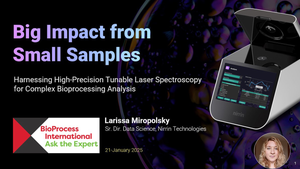
Ardena’s aseptic fill-finish facility in Ghent, Belgium has been granted a good manufacturing practice (GMP) license by the Federal Agency for Medicines and Health Products (FAMHP).
According to the firm, this license will enable the contract development manufacturing organization (CDMO) to develop and clinically produce small and large molecule including proteins, peptides, oligonucleotides, DNA, recombinant RNA, synthetics RNA and RNA vaccines for their trusted partners.
“Our new aseptic fill-finish plant is a very important milestone for us to manufacture drugs for early-phase clinical trials. It allows us, for the first time, to produce GMP batches of drugs in vials, encompassing small molecule formulations as well as large molecules such as biologics and oligonucleotides,” a spokesperson for Ardena told BioProcess Insider.

c/o Ardena
“This expansion aligns with the growing demand for aseptic manufacturing, particularly to bring novel parenteral therapies to the clinic.”
The facility situated in northwest Belgium uses ARaymond Life’s RayDyLyo push-fit caps in the vial-capping process. The push-lift caps in the vial closure system represent an important advancement in sterile drug manufacturing for small batches. These tear-off caps, pre-assembled with a rubber stopper, simplify the vial-capping process by requiring only vertical pressure for a secure seal. This enhances efficiency and flexibility, maintaining the quality in the sterile process.
“Following the GMP approval for our facility, Ardena will commence manufacturing GMP batches for projects that began at the formulation development stage. This achievement reflects our dedication to excellence and compliance, having successfully met the stringent inspection criteria set by regulatory bodies,” said the spokesperson.
Moreover, in July 2021, Ardena invested $35 million to expand its European operations in Belgium, Sweden and the Netherlands, and recently partnered with Dutch messenger RNA (mRNA) firm RibPro combined its lipid nanoparticles formulations with their mRNA tech to improve accessibility of RNA-based treatments.
About the Author
You May Also Like








